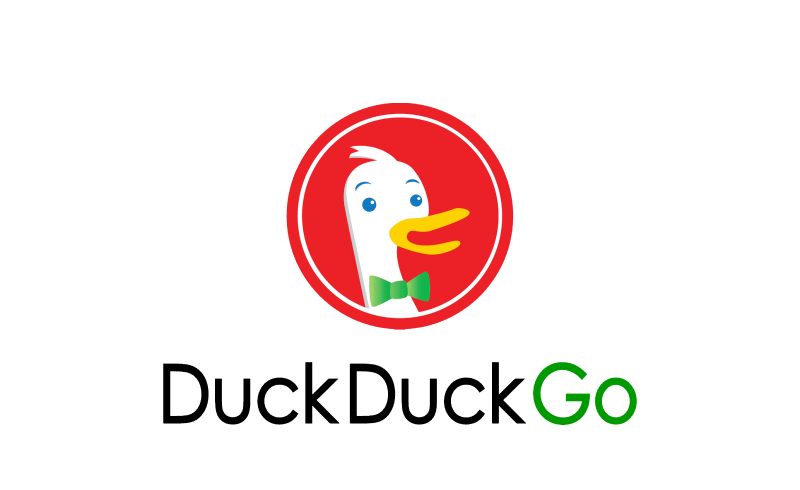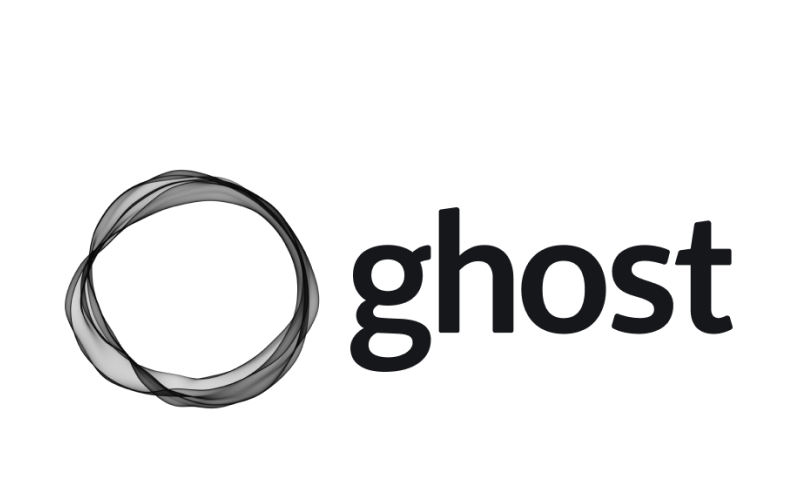Ghost CMS is a publishing platform designed for organizations. Noted for its SEO focus, Ghost CMS supports content optimization, customizable themes, and seamless performance across devices. Integration with third-party tools enhances analytics, social media, and eCommerce capabilities is made possible through the open source nature of the platform.
What is Ghost?
Ghost is a powerful and elegant Content Management System (CMS) designed for organizations seeking an efficient platform for their online presence. Developed with a deep understanding of the evolving needs of content creators, Ghost CMS offers a user-friendly and intuitive interface so creators can focus on their content without distraction.
The genesis of Ghost can be traced back to the desire for a simpler and more streamlined alternative to existing CMS platforms. The system was developed to address the growing demand for a lightweight yet feature-rich solution that would meet the specific needs of bloggers, publishers, and organizations aiming to deliver exceptional content experiences. Ghost CMS was born out of a vision to create a platform that prioritizes the content creation process, allowing creators to effortlessly bring their ideas to life.
The founders of Ghost recognized the importance of a simple writing experience, where authors could fully immerse themselves in their craft. With this in mind, Ghost CMS was meticulously crafted to provide an elegant and distraction-free writing environment. When eliminating clutter and unnecessary complexities, Ghost lets users to focus solely on their content, fostering creativity and enhancing productivity.
How does Ghost work?
Ghost CMS works on a modern and efficient framework powered by Node.js and JavaScript and follows a decoupled architecture, known as a headless CMS, which separates the content creation and management process from the front-end presentation layer. This approach provides developers with the freedom to design and build customized front-end experiences using their preferred tools and technologies.
The core functionality of Ghost CMS lies in its intuitive and streamlined interface, enabling users to create and manage content with ease. Through the use of Markdown, a plain-text formatting syntax, authors can focus on writing without the need for complex HTML coding.
Deploying Ghost CMS involves setting up a server environment that supports Node.js. Once the environment is configured, the Ghost CMS software can be installed and launched. Organizations can then access the CMS through a web browser, where they are provided with a user-friendly dashboard for content creation, organization, and editing.
Ghost vs WordPress
Creation and management
Both Ghost CMS and WordPress offer content creation and management features. They provide intuitive interfaces for creating and editing content, organizing it into categories or tags, and scheduling posts for future publication. However, Ghost CMS specializes in delivering a simple experience focused on blogging and publishing, making it ideal for content-centric websites. On the other hand, WordPress, being a versatile platform, caters to a broader range of website types, including blogs, eCommerce sites, portfolios, and more.
Customization and flexibility
When it comes to customization, WordPress can be considered to be superior due to an extensive collection of themes and plugins. With thousands of free and premium options, users can easily modify the appearance and functionality of their WordPress site. Ghost CMS, on the other hand, offers a more limited selection of themes and extensions but emphasizes simplicity and performance, allowing for greater control over the code, making it a preferred choice for developers seeking a lightweight and highly customizable platform.
SEO and performance
Both platforms understand the importance of SEO and provide basic optimization features. WordPress has a long-established ecosystem of SEO plugins like Yoast SEO and All in One SEO Pack, which offer advanced tools for optimizing content, generating XML sitemaps, and managing meta tags. Ghost CMS, on the other hand, integrates SEO-friendly features by default, such as automatic generation of clean URLs and the ability to optimize content using Markdown. It focuses on delivering fast and performant websites, leading to improved search engine rankings.
Features of Ghost
Custom themes | Ghost CMS offers the ability to create and customize themes according to your specific branding and design preferences. The template engine allows developers to build unique, visually appealing themes tailored to their organization’s needs. |
Headless architecture | The headless architecture separates the front-end presentation layer from the content management system. This approach allows for greater flexibility and scalability as developers can leverage Ghost’s powerful API to deliver content seamlessly across various platforms and devices. |
Markdown editing | Markdown, a lightweight and intuitive markup language, for content creation and editing provides a simplified way to format text, so users can focus on the content itself without the need for complex HTML coding. |
API integration | A comprehensive API encourages integration with other tools and services, letting developers connect Ghost with external applications, such as analytics platforms or marketing automation tools, to increase functionality and simplify workflows. |
SEO | With strong emphasis on search engine optimization (SEO) and provides built-in features and settings, such as SEO-friendly URLs, customizable metadata, and XML sitemaps, Ghost helps improve website visibility and organic search rankings. |
Multi-user collaboration | Emphasis placed on collaboration within teams means end users have different roles and permissions, meaning organizations can effectively manage content creation and publication workflows. |
Performance optimization | When leveraging technologies like Node.js and optimized database queries to deliver quick response times, Ghost provides a smooth and responsive experience for both content creators and website visitors. |
Built-in analytics | Organizations can access essential metrics, such as page views and post performance, helping organizations measure the effectiveness of their content strategies. |
Extensibility with apps | With apps providing additional features and integrations, users can further improve and customize their Ghost CMS experience. |
Mobile optimization | Ghost CMS prioritizes mobile optimization, so that websites built on the platform are responsive and accessible on various devices. Organizations can then deliver an improved user experience across smartphones, tablets, and other mobile devices. |
Integrating Ghost with other platforms
Discord
Discord is a popular communication platform for communities, teams, and organizations. Integrating Ghost CMS with Discord means organizations can share published content and foster discussions. The integration can be achieved using webhooks, allowing organizations to automate the process of pushing new content updates to specific channels on Discord.
With Google Analytics, organizations can gain valuable insights into content’s performance, user behavior, and conversion rates. The integration typically involves adding unique Google Analytics tracking code to Ghost themes, enabling key metric monitoring , identifying popular content, and making data-driven decisions to optimize performance.
Slack
When integrating Slack, organizations can simplify the content creation process and improve team collaboration. Integration allows real-time notifications about content updates, drafts, and published posts directly in Slack channels, so teams stay informed, access quick feedback, discussions, and efficient coordination.
Advantages of Ghost
Simplified content creation and management
A clean and distraction-free editor, powered by Markdown, allows organizations to focus on writing without the complexity of a traditional CMS. This simplicity makes it easy to produce and publish high-quality content efficiently.
Built-in SEO
With an inherent focus on search engine optimization (SEO), Ghost CMS provides built-in features to help improve discoverability and organic rankings. With these crucial elements, Ghost CMS helps users to create content that is well-optimized for search engines, improving visibility and driving organic traffic.
Flexible theming and customization
Organizations can create and customize themes according to their specific branding and design preferences. This level of customization allows organizations to maintain a unique and cohesive online presence that aligns with their brand identity.
Headless architecture for versatile content delivery
The headless architecture separates the content management system from the front-end presentation layer, leading to versatile content delivery across multiple platforms, including websites, mobile apps, and other digital channels. By decoupling content from presentation, Ghost CMS lets organizations provide consistent and engaging experiences to their audience through various touchpoints.
Developer-friendly and extensible
Ghost CMS caters to developers with its developer-friendly features and extensibility. Node.js and JavaScript provide a familiar environment for developers, helping them to leverage their skills and build powerful customizations. Ghost CMS further offers an extensive API, allowing integration with external services and expanding its functionality to suit specific organizational needs.
Who uses Ghost?

DuckDuckGo, the privacy-focused search engine, harnesses Ghost CMS to manage its official blog. With Ghost CMS’s clean and intuitive interface, DuckDuckGo can effortlessly publish and optimize its insightful articles, keeping its user base informed about privacy-related topics and company updates.

Mozilla Firefox relies on Ghost CMS to power its official blog and resource center. Ghost CMS helps the Firefox team *curate engaging content, share product updates, and foster an active community around the browser, all while adhering to the principles of open-source and transparency.

The Financial Times uses Ghost CMS to manage specialized blogs and publications. Ghost CMS lets them deliver an exceptional reading experience to its audience, leading to improved navigation, optimized performance, and a visually appealing layout for their comprehensive financial news coverage.
Disadvantages of Ghost
Limited plugin and extension ecosystem | While Ghost CMS offers some plugins and extensions, its ecosystem is not as extensive as other CMS platforms. This limited availability may pose challenges when seeking specific functionalities or integrations, requiring custom development or workarounds. |
Steeper learning curve for beginners | Compared to some other CMS platforms, Ghost CMS can have a steeper learning curve, especially for users who are new to web development or content management systems. Focus on simplicity and minimalism may require users to invest more time and effort to grasp concepts and customization options. |
Advanced customizations require technical skills | Although Ghost CMS provides customization options, advanced modifications often require technical skills such as coding in HTML, CSS, or JavaScript. Non-technical users may face challenges when attempting to implement complex design changes or tailor the platform to their specific needs. |
Limited built-in features | Ghost CMS follows a minimalist approach, offering a lean set of built-in features compared to some other CMS platforms. Users seeking extensive out-of-the-box functionality, such as eCommerce or membership systems, may need to rely on third-party integrations or custom development to meet their requirements. |
Relatively smaller community and support network | While Ghost CMS has a dedicated community, it is relatively smaller compared to more widely adopted CMS platforms. Consequently, finding comprehensive support resources, tutorials, or community-driven solutions may be slightly more challenging, potentially leading to longer resolution times for specific issues. |
Lack of visual editing interface | Ghost CMS primarily relies on Markdown for content creation, lacking a visual editing interface commonly found in other CMS platforms. This absence of a WYSIWYG (what you see is what you get) editor may require users who prefer a visual editing experience to learn Markdown syntax or rely on external tools for content formatting. |

